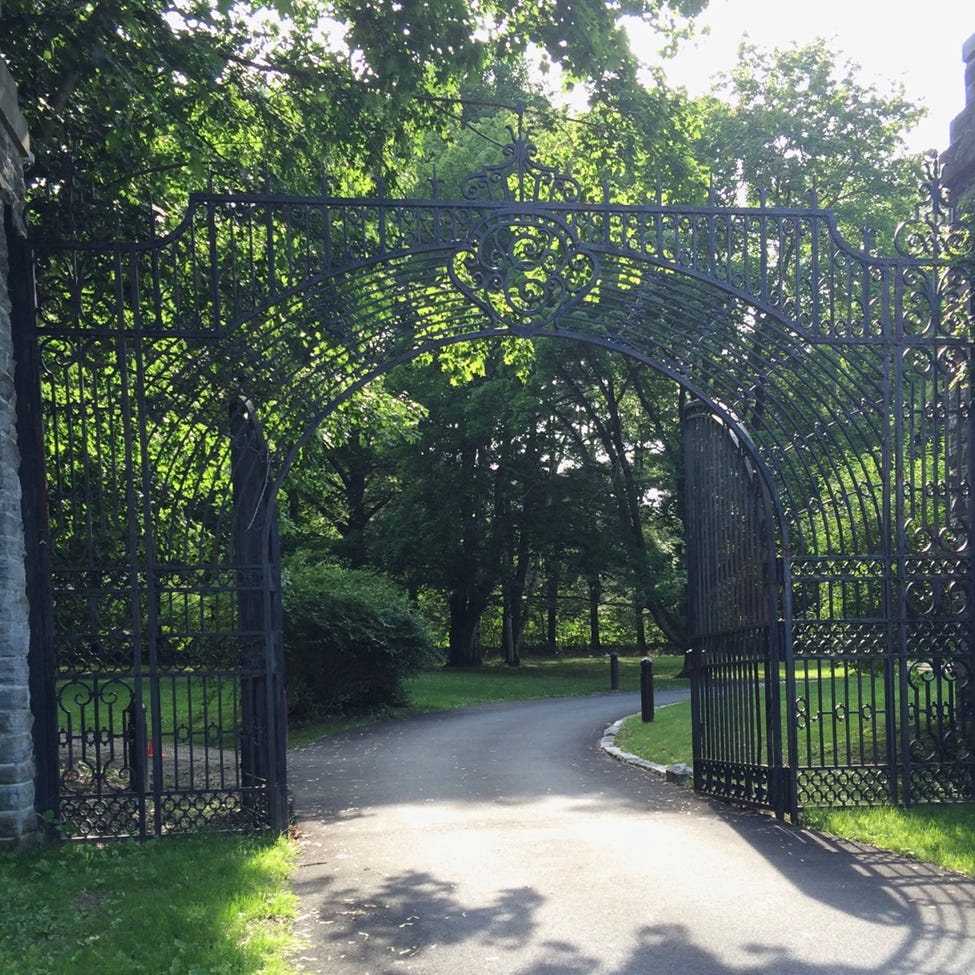APS TOGETHER
Day 2
The Haunting of Hill House by Shirley JacksonChapter 1, Part 4-5
October 11, 2023 by Ruth Franklin
“Caring for her mother, lifting a cross old lady from her chair to her bed, setting out endless little trays of soup and oatmeal, steeling herself to the filthy laundry, Eleanor had held fast to the belief that someday something would happen.”
Finally it has. Her journey to Hill House begins on “the first genuinely shining day of summer.” In Jackson’s work, good weather is often a sign that something bad is about to happen: the famous lottery, too, takes place on a beautiful day. It’s not incidental that Eleanor drives herself to Hill House. Her theft of the car is her first assertion of independence, her first step toward a new life.
“She meant to savor each turn of her traveling, loving the road and the trees and the houses and the small ugly towns, teasing herself with the notion that she might take it into her head to stop just anywhere and never leave again.”
Jackson, who learned to drive later in life, also loved the sense of freedom it gave her.
En route to Hill House, Eleanor indulges in fantasies of creating a home, picturing herself in various houses she passes along the way—a mansion guarded by stone lions, which she would lovingly polish; a cottage with a blue front door and a white cat on the doorstep. Remember these: they will reappear later. In each one she imagines living a different kind of life. Isn’t this the same fantasy implicitly promised by shelter magazines: that by changing our surroundings, we can change our life?
Two scenes in restaurants. First, Eleanor stops at a restaurant in an old mill (where she eats a meager meal of cottage cheese and “corn sticks”—cornbread?) and eavesdrops on a family sitting near her. The little girl refuses to drink her milk because it’s not served in her favorite cup, one with stars on the bottom. The girl’s mother tries to persuade her to drink it anyway. “Don’t do it,” Eleanor silently bids the girl.
“Insist on your cup of stars; once they have trapped you into being like everyone else you will never see your cup of stars again.”
Here’s another potent symbol of independence, of asserting one’s own will.
Then Hillsdale, where Eleanor stops even though Dr. Montague warned her not to. (“Next time I will listen to Dr. Montague,” she tells herself.) The coffee and donuts in the diner are miserable, and so is her attempt to make conversation with the waitress. “People leave this town,” another patron tells her; “they don’t come here.” Does the waitress see through her attempt to drum up inside info about Hill House? Could the waitress and the man both be trying to warn her? “I hope you find your house,” the girl says as Eleanor leaves.
In my book about Jackson, I speculate that the Everett Mansion, in Bennington, Vermont, was a major inspiration for Hill House. I found a picture of it in Jackson’s Hill House—inspiration scrapbook; I also had an uncanny experience there myself, which you can read about here. Jackson describes the gate to Hill House as “tall and ominous and heavy, set strongly into a stone wall which went off through the trees.”
Here's the gate of the Everett Mansion, photographed by me in 2015. Not the best picture, but you can make out the stone wall.

We’ll get to the house itself next time.
